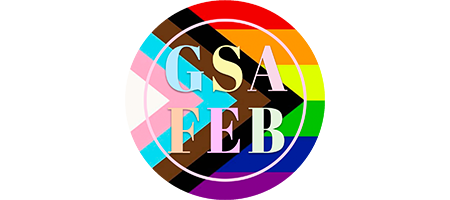Coming Out
Coming out. It’s something that many people in the LGBTQIA+ community go through. Coming out refers to the process of sharing your sexual orientation or gender identity with other people. For everyone, coming out is different and deeply personal. You decide when, to whom, and how to come out. Coming out should feel right, safe, and liberating. However, it is completely okay if you decide to never come out, for whatever reason, as it is YOUR journey.
When to come out:
Coming out is an ongoing process. You don’t have to come out to everyone at once. The first step is often coming out to yourself as you recognise and accept your own sexual orientation or gender identity. Next, you might choose to tell family members, friends, and/or people in your (online) community. You might tell these people at the same time or at different moments. There might also be people you never decide to share your gender identity and/or sexual orientation with. That’s okay!
Additionally, coming out isn’t a one-time thing. Yes, you might come out to different people you know at different times, meaning you come out multiple times, but because many people assume that everyone they meet is straight, coming out is a constant process. Every time you meet someone new, you have to decide if, when, and how to come out. It is important to remember that there’s no right or wrong in making these decisions, as it’s your personal journey.
It is also increasingly common for people, famous or not, to come out to the general public using social media platforms. These people may post elaborate statements or pictures on Instagram, or post coming out videos on YouTube or TikTok.
A safe space:
No matter if you’re queer yourself or not, it is important to create a safe, supportive, and open environment for people to come out in. What should you do when someone comes our to you? Here are a few tips:
- Support them. Tell them you are happy for them and that they can let you know if they need anything
- Do you have questions? Be mindful of the appropriateness of the questions you have. The person coming out to you might not be ready for/want to answer the questions you have. If you do ask questions, make sure that you come across as eager to understand
- Keep being yourself. As coming out is a very vulnerable thing to do for the person coming out, being yourself can help create the safest environment for the person coming out.
- People might be out in some places but not in others. This can be for safety reasons or just personal choice. As it is not up to anyone but the person coming out to reveal their identity, it might be good to discuss what they feel comfortable with concerning who can and can’t know.
National Coming Out Day:
National Coming Out Day is an internationally recognised day celebrating people living their authentic lives openly and a day of awareness and support towards those who are still in the process of coming out or not out yet. National Coming Out Day is celebrated annually on October 11. It was first celebrated in the United States in 1988 on the anniversary of the Second National March on Washington for Lesbian and Gay Rights, which took place on October 11, 1987. While first observed in the United States, National Coming Out Day is now an internationally recognised LGBTQIA+ awareness day.
